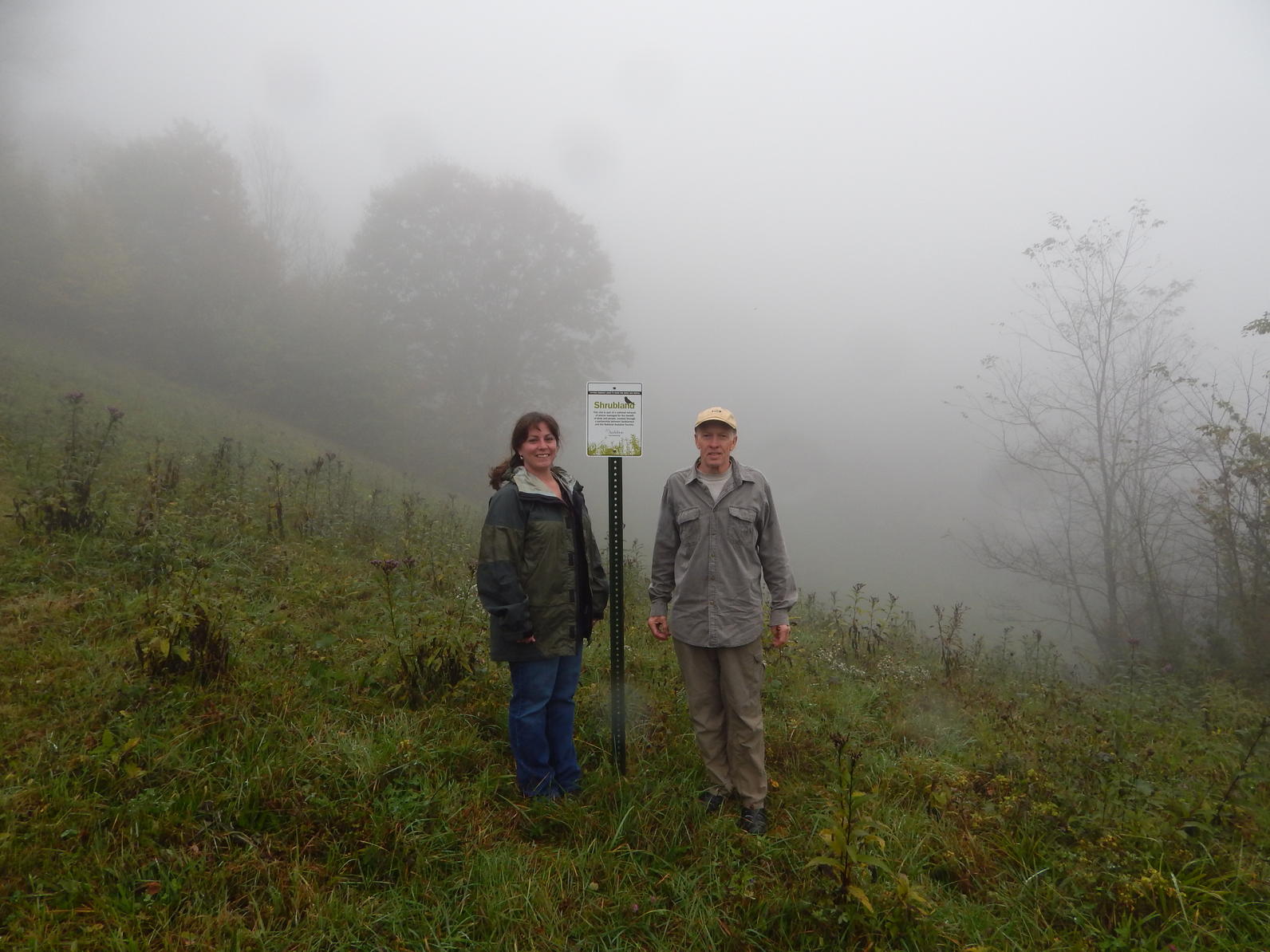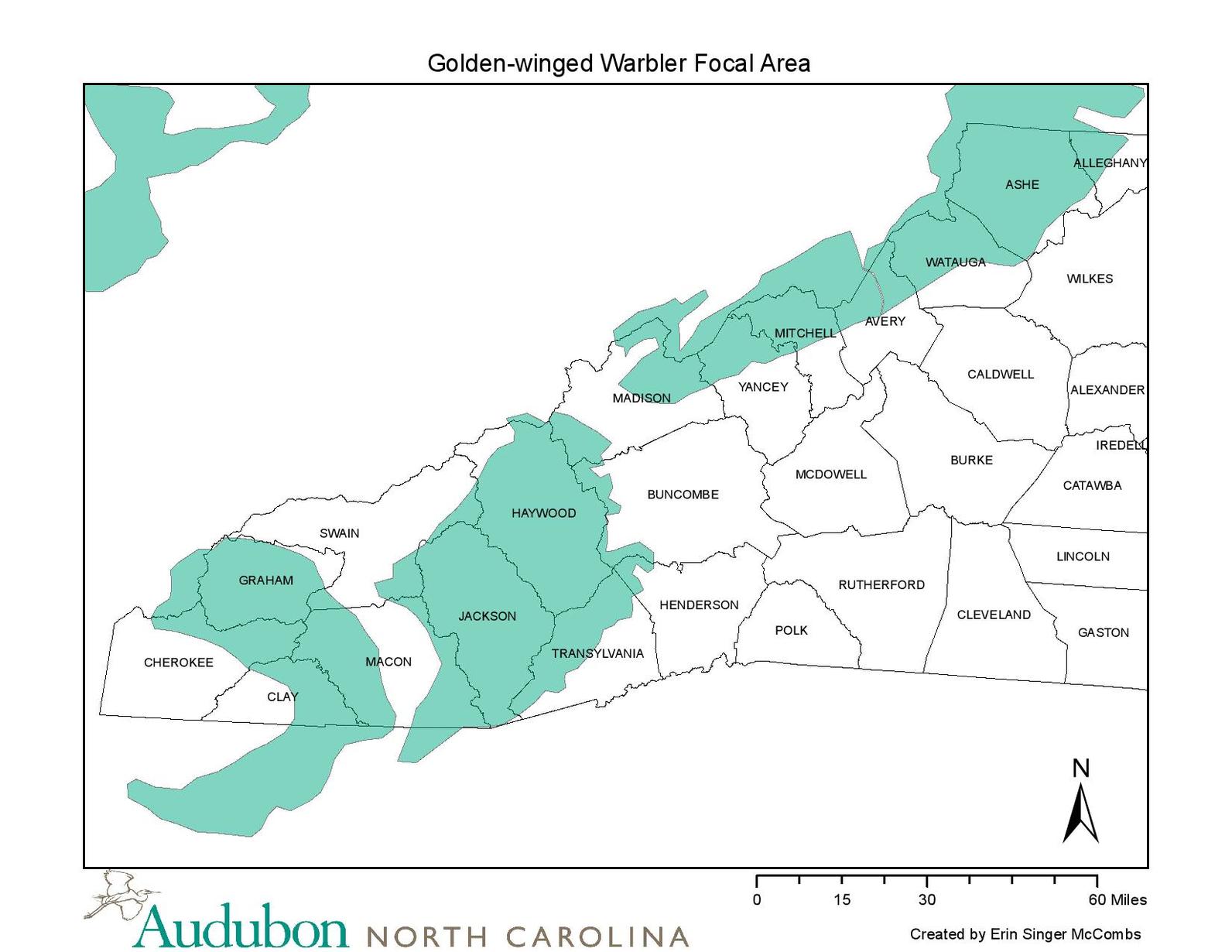Through our Putting Working Lands to Work for Birds and People program, Audubon North Carolina is engaging private landowners across the region to make working lands benefit birds, people and communities, focusing on forests, shrubland and grassland habitats.
Landowners enrolled in the program will receive special signs to display on their property to signify their efforts to manage habitat they own to benefit priority bird species such as the highly threatened Golden-winged Warbler.
Being considered for listing as an endangered species, the Golden-winged Warbler has suffered one of the steepest population declines of any songbird species in the past 45 years. Audubon North Carolina staff are working directly with landowners on their Western NC breeding grounds to restore the specialized habitats they require.
Impacts of Habitat Restoration
By converting even a small portion of land into early successional forest habitat, you can help protect birds like the Golden-winged Warbler, which rely on Western NC’s shrubland habitats to breed each summer.
Liz Seiberling and Randy Cullom of Clyde, NC recently enrolled to manage their land for the benefit of these highly threatened warblers.

“It has been a real privilege to work with Aimee and Patrick on improving the habitat for Golden-winged Warblers here at Cold Springs Ranch (CSR). We were able to set aside several acres of prime habitat that had been kept mowed for many years. It is an area that is very difficult to mow because of how rocky and steep it is, so it had been neglected for a few years and had become good Golden-winged Warbler habitat on its own.
It was very gratifying to present it to the full CSR community (with the help of Audubon and NC Wildlife) as a bird habitat and have it unanimously embraced! Golden-winged Warblers have been observed nesting in the area now.”
If you or someone you know lives in the Western NC mountain region, your habitat may be a prime site for priority species like the Golden-winged Warbler. Review our focal area map. If your property is found in one of these areas, contact Aimee Tomcho, Conservation Biologist, to schedule a land survey to determine if you’re eligible to join.

Click here to learn more about Golden-winged Warblers and our work to restore their nesting habitats through the Putting Working Lands to Work initiative.




